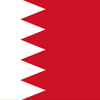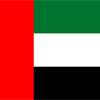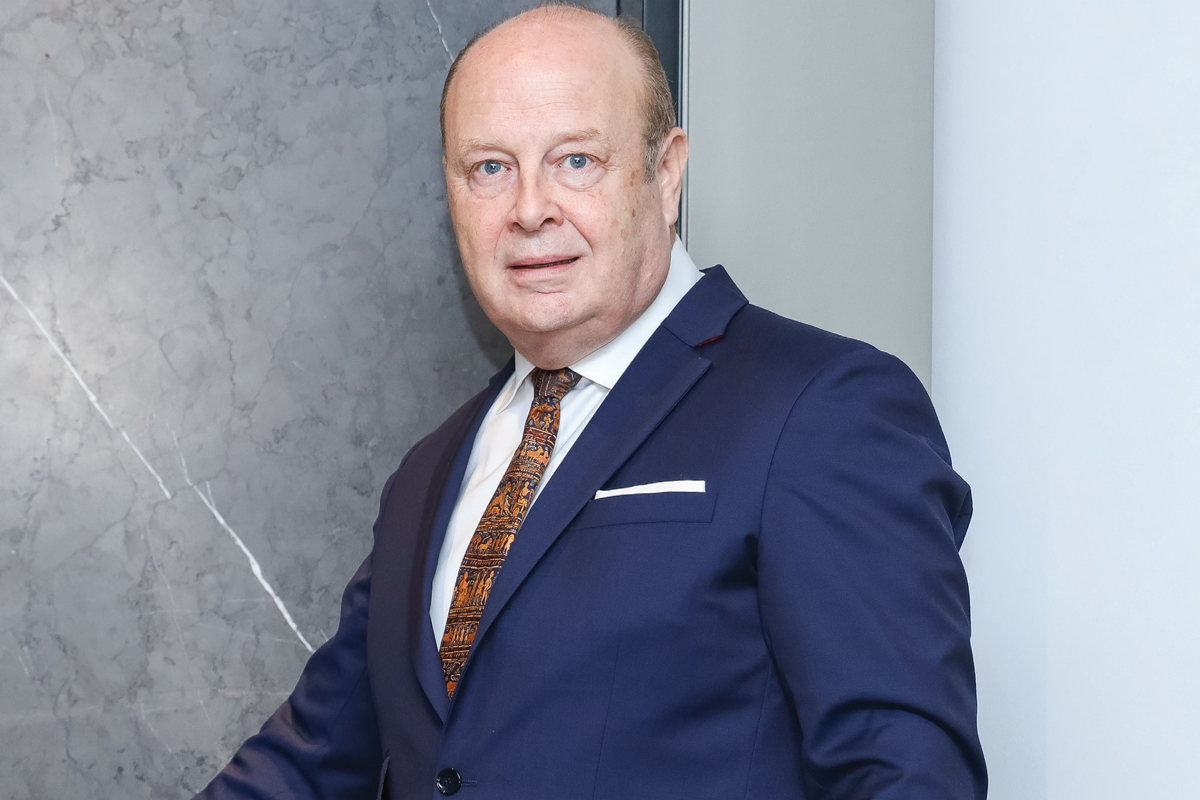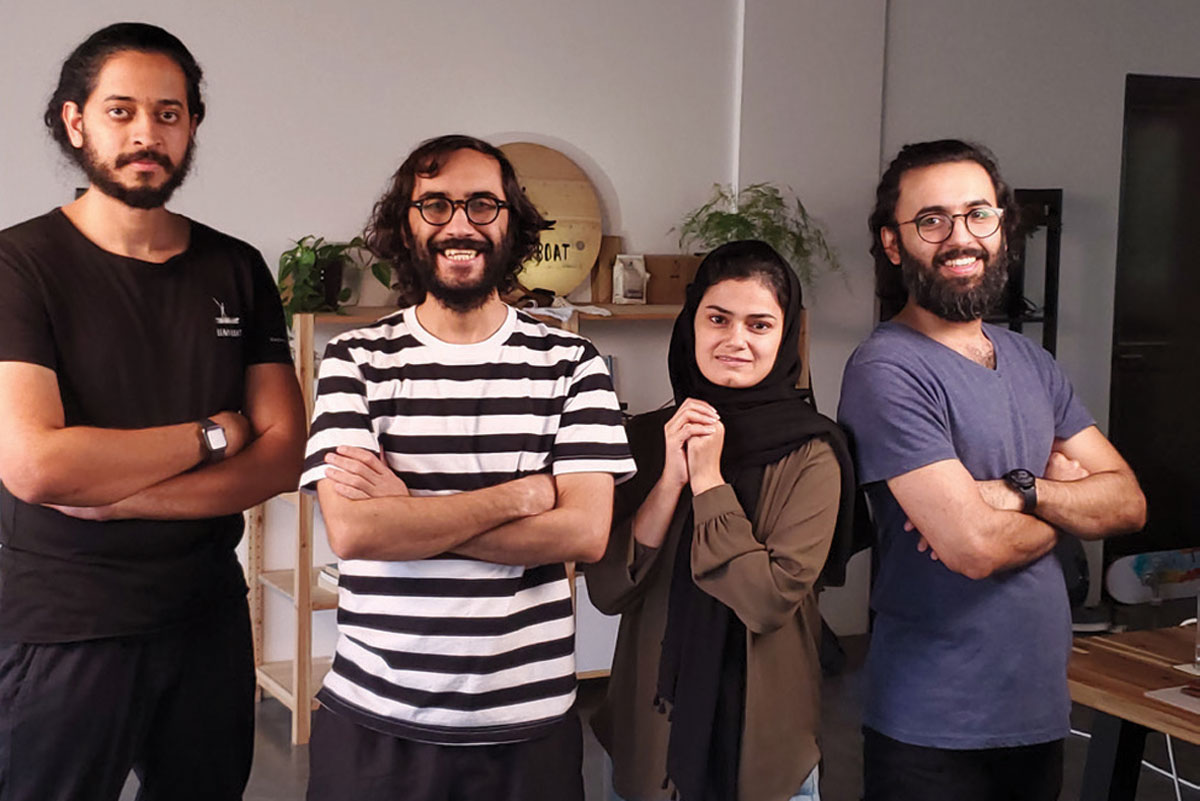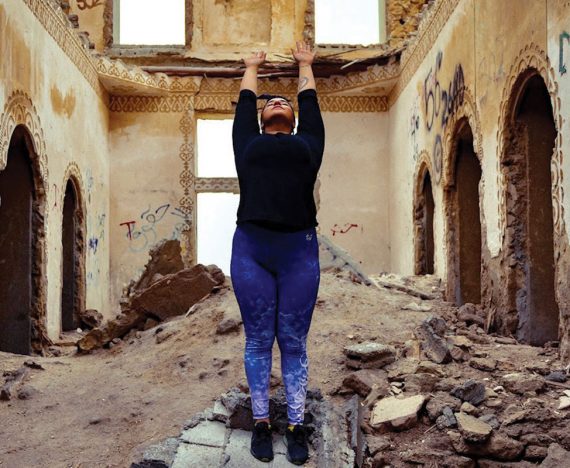LIFE LIKE THIS

It’s safe to say ‘new normal’ is one of the most overused buzzwords of 2020 – and for good reason. So what do Bahrain-based entrepreneurs across fields like education, wellness, and food tourism reveal about their new normal? Listen in.
“NO ONE ANTICIPATED THE TYPE OF RADICAL DISRUPTION THAT WE FACED BECAUSE OF THE PANDEMIC.” – LATIFA AL-KHALIFA
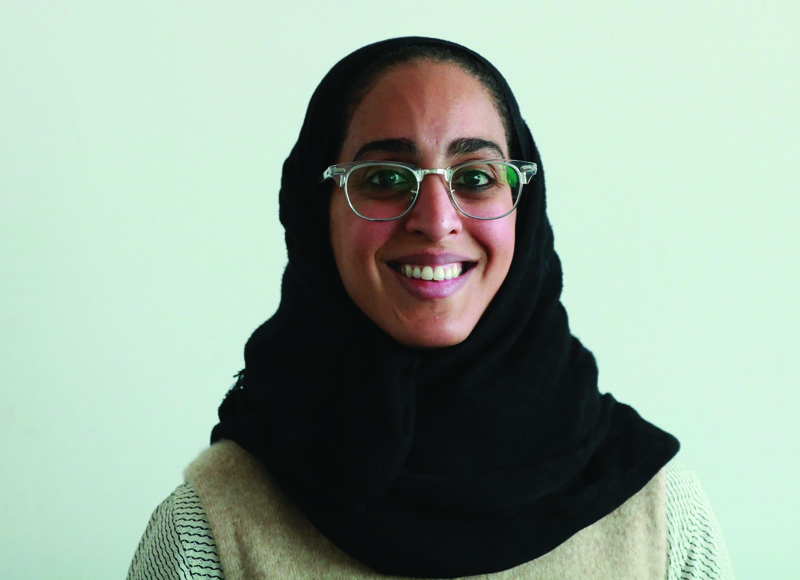
Change happens in our rapidly evolving world, but no one anticipated the type of radical disruption that we faced because of the pandemic.” So begins our conversation with Latifa Al-Khalifa, co-founder and CEO of Clever Play. The STEAM educational platform inspires children to discover their passion for science, technology, engineering, arts, and maths so they can be engaged in the learning process – as opposed to hitting targets. This is executed through the likes of camps, educational kits, and – most recently – virtual programs. “We’re fortunate that our online platform was in the pipeline since mid-2019. The sudden shift in learning environments forced us to adapt quickly, starting new streams of service even before we were ready and recalibrating our steps along the way,” says Latifa of her new normal. The entrepreneur misses the normalcy of children “tinkering their way to discovery”, as she so eloquently puts it, and dubs the present a transition. “It’s hard to think of it as some sort of normal when situations change by the day and uncertainty hangs heavily in the air. I’m inspired by how Satya Nadella framed the three phases of our current reality: restore, recover, reimagine. The first is about getting back out there and carrying on our service intentions to the extent that they’re doable. The second has us keeping stock of what is working for us and troubleshooting our way into getting customers back. The third is one to be sustained in 2021, using creativity as we renew connections and reinvent our presence. This means expanding our presence through products that take learning safely to children’s doorsteps.” In the meantime, Latifa is still looking to the past few months, analysing the role of entrepreneurs. “As far as our niche is concerned, parents, educators, and the youth can rest assured we are continually finding ways to offer relevant services, even in this uncharted territory. We’d like to see them engaging more with local entrepreneurs, speaking up because it’s their stories and actions that guide our efforts.” Here, she highlights how a breakdown of normalcy paved the way for new ideas and intentions. “Yes, so many opportunities were lost, yet the pandemic opened doors like never before. I was amazed at how much we were able to expand the brand beyond Clever Play through podcasts, webinars, and interactive platforms.” At a time when the traditional models of education are questioned, we discuss the future of such innovations with Latifa. She says that while Clever Play operates in a handson environment, the pandemic pushed it out of its comfort zone. “It forced us to incorporate so much of the face-to-face methodologies that reap clear achievement outcomes into the virtual plane. What most schools are discovering is that evolving would recreate the online experience so it can deliver what many say it falls short on: peer interaction. On the upside, this shift is doing us a favour by putting a spotlight on the need to get kids learning beyond the books.” ✤
I SAY DO WHATEVER IT TAKES TO SURVIVE.” – YUSUF BUKHAMMAS
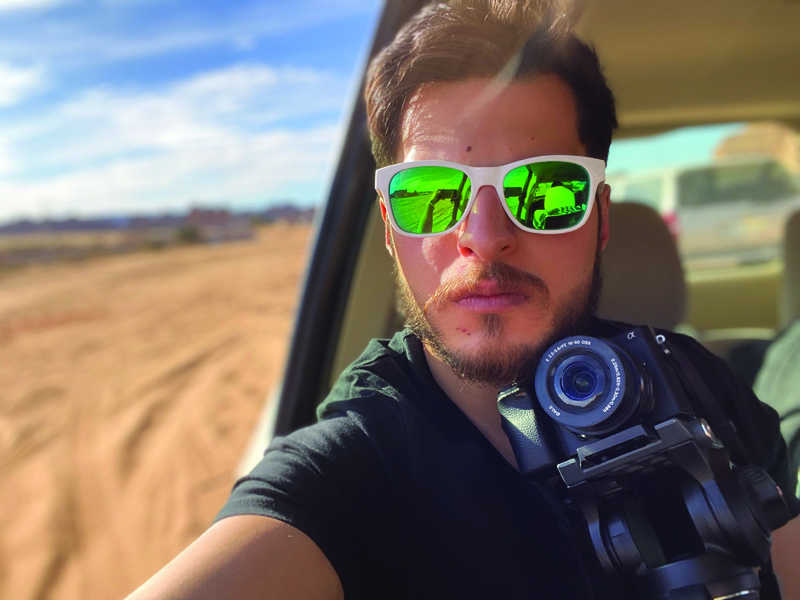
You take what the day brings,” is how Yusuf Bukhammas begins to describe his new normal. The founder of ThisFoodTour saw his popular walking food tours come to a standstill earlier this year. “I stopped operating before the situation got out of control and all the restaurants were forced to close because people weren’t going out as much.” At the crossroads of tourism and dining, he’s in an industry that is especially hard hit. “My tours take place in Manama Souq, which is the heart of Bahrain and brimming with history, but it isn’t somewhere people want to go at the moment as it’s densely populated. It’s completely out of my hands. I’m lucky to still have my full-time job as a videographer.” Yusuf tells us that 85 per cent of the people attending his tours were tourists, many of whom came from cruise ships. The conversation turns to the MS Roald Amundsen, which faced backlash after a recent voyage resulted in 41 passengers and crew testing positive for COVID-19. “There’s certainly no cruise ships coming to Bahrain anytime soon, but travellers are still the people I want to serve because ThisFoodTour is not just about food, but also the history behind each stop. While they’re getting to know Bahrain’s culture, they’re bringing Austria, Canada, Australia to me. The bonding happens while you’re biting.” What’s unfortunate is that dining at old-school eateries entails dishes that have been prepared by hand, sharing platters of food with complete strangers – nuances that quickly went from charming to unnerving in 2020. After researching how food tours worldwide have coped, delivering boxes with items from each stop, Yusuf is unable to envision a drastically different reality. “I’d rather not tweak my tours and take away from their purpose. I don’t want to take people to street food hotspots with them wearing gloves and feeling paranoid while sanitising everything in sight. I still want the laughs and the hugs to happen,” he says nostalgically. “My sole purpose is not to make money, that’s why I’m waiting until things get slightly back to normal – and I rather not set a timeline. That would only lead to disappointment. Luckily, getting back on track won’t be difficult. I can simply open up the tours on the calendar once restaurants reopen.” And until that day comes, Yusuf will continue to reflect. “My relationship with food has changed a lot. I’ve always loved food, but I never got to experience it in terms of gastronomy. The pandemic has forced me to slow down, so I watch series like Somebody Feed Phil with Google Maps open on my phone, marking every place that Philip Rosenthal visits. There’s now 200 restaurants around the world that I want to visit.” Meanwhile, witnessing the opening of new restaurants in Bahrain, Yusuf says he’s happy to see fellow entrepreneurs taking a risk circa now. “If restaurants can operate these days simply by offering home delivery, why not? I say do whatever it takes to survive.”✤
EVEN WHEN THINGS FEEL OVERWHELMING, IT’S IMPERATIVE TO SOLDIER ON – OUT OF ADVERSITY COMES OPPORTUNITY.” – MAHA ALSAHHAF AND JAYNE HOUGHTON

The pandemic brought events like concerts, food festivals, and trade shows to a standstill, and Bahrain Popup Market was no exception unfortunately. “Our operations were among the first to be directly affected and will be the last to be reinstated, so we know the burdens faced by people,” say founder Maha Alsahhaf and co-founder Jayne Houghton. But necessity is the mother of invention, as they say, so Bahrain Popup Market is now in the process of launching a digital marketplace. Entitled ThePopUpShop.co, it will launch on October 1 and serve as a natural progression of its pop-ups. “Online, we can create captivating content to ensure people stop, stare, click, and buy 365 days a year.” Both Maha and Jayne have long lived by ‘support local’, a motto that has led to their events selling out and hosting a large footfall of customers. “Bahrain Popup Market has always been at the very heart of the community and a place for local businesses to thrive,” they say. “Our sole purpose has always been to provide a platform for artisans to display and sell their items to a wide audience, therefore we had no choice but to pivot. Building an online marketplace is definitely the best solution as people’s spending habits diversify. Our new normal is working tirelessly towards creating a digitalised platform to support these creatives.” Revealing more about how their concept is evolving, the duo adds: “Many small businesses have been badly affected since the pandemic began, and they’ve had to find other ways of reaching their clients. For some, that was impossible and, for others, the problem was how to do it and where to begin. This is why we’re launching ThePopupShop.co to not only support local artisans, but also provide an alternate experience to visitors who would regularly attend our markets.

This will continue to give vendors the sales opportunities they’ve become accustomed to during our events, while creating an online community where we can all support the economy through purchasing curated pieces from talented individuals across the region.” Today, as the two entrepreneurs look forward to the days of interacting with their vendors face-to-face and hosting “bigger and better” outdoor events, Bahrain Popup Market is enlisted on an innovative programme called SC Women in Tech that supports female entrepreneurs and their digital vision. “Out of over 120 applications, we were fortunate to be one of the 26 that were accepted into the 56-hour virtual challenge to make it through to the final 11 as part of an eight-week incubation programme,” explains Jayne. “Standard Chartered Bank, Supreme Council for Women, and Bahrain FinTechBay have provided us an abundance of support as well as unparalleled access to the movers and shakers of Bahrain.” As for what 2020 taught them? “We’ve learnt that even when things feel overwhelming, it’s imperative to soldier on – out of adversity comes opportunity.”✤
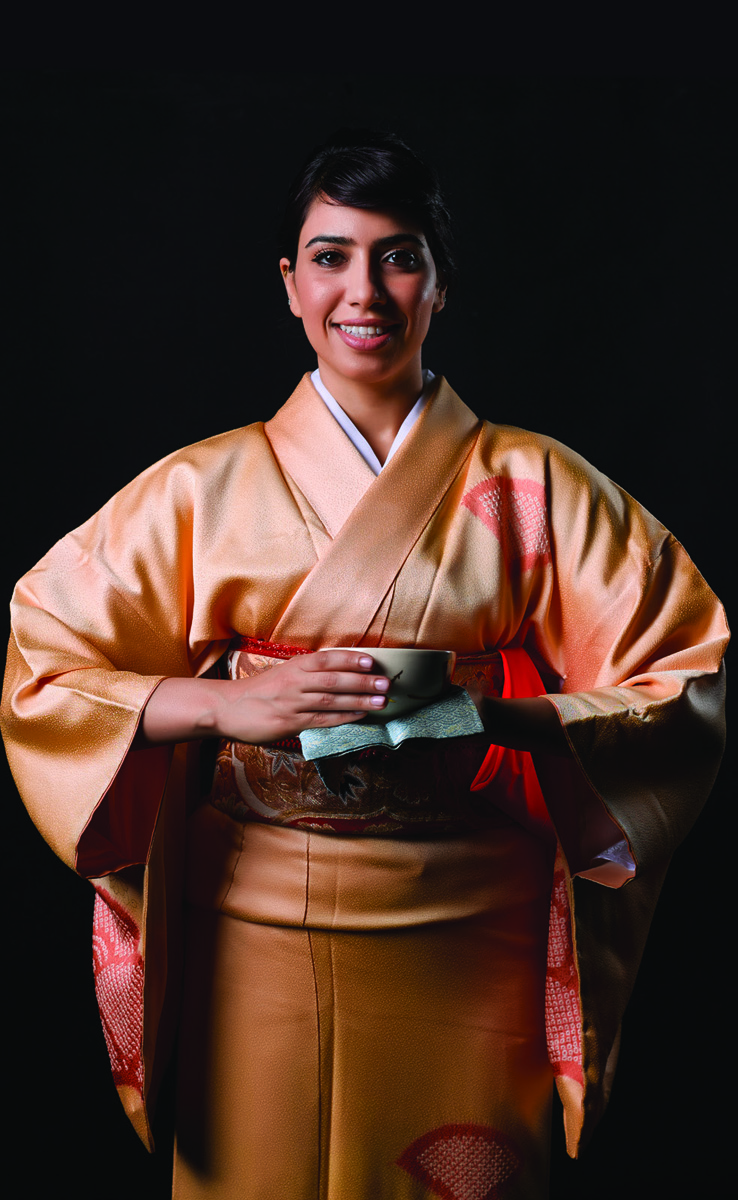
In contrast, Budoor Al Murbati-Steele, founder of Japanese teahouse Chawan, says her new normal didn’t entail changes as drastic as others experienced. She first found her calling through hanami, the Japanese tradition of enjoying tea under the beauty of cherry blossoms, so it’s no surprise that the beverage was a steady companion through quarantine. “Before the pandemic, I would spend a significant portion of my time practising chadō (the Way of Tea), teaching online classes as a tea instructor for International Tea Education Institute, and processing orders for Chawan’s online shop. I’m now able to invest more time enhancing my tea knowledge and skills. Even though I can’t travel to Japan as frequently as I did before, I utilise technology – I’m taking more chadō classes with my sensei in Japan and a business development course with UNIDO.” The tea master has also been contemplating freedom and family, precious things we often take for granted. “The current situation has been challenging in different ways for each individual. However, it’s important to consider every obstacle a learning opportunity for growth.” We discuss how often Japan has made headlines in 2020 – its culture of collectivism and practices like forest bathing have been recognised worldwide. Here at home, Budoor is full of praise for chadō. “It’s not just a tea ceremony, it is a way of life. The practice itself acts as a moving meditation to reduce stress and anxiety. Chadō teaches self-discipline, patience, appreciation of nature, and how to see life from a different perspective,” she explains. She recently embodied this practice by celebrating the Japanese festival of Tanabata with a virtual tea gathering while reminding her Instagram followers to find beauty in simplicity. Budoor the entrepreneur, meanwhile, is grateful that part of Chawan’s business model has been virtual as it offers online tea classes and workshops. “The changes for us were not being able to welcome people at the teahouse, host cultural events, organise chadō performances, or offer workshops. What I would carry over into 2021 is a greater appreciation for this time we get to spend with people. An idiom we often keep in mind is ‘Ichigo Ichie’, which conveys that every encounter is a once-in-a-lifetime interaction that won’t be repeated in the same way. Thus, every moment is special.” Now, Budoor is looking forward to hosting people, serving tea, and “sharing the beauty of the tea world”. She’s also eager to celebrate Japanese festivals such as Tanabata (star festival), Tsukimi (moon-viewing festival), and others in the tearoom.” And till that day comes, she’s appreciative of the support she has received over the past few months. “I created a temporary menu so everyone could enjoy our delights until we reopen. It includes onigiri, date-filled mochi, and handcrafted sweets known as nerikiri – and the orders have been a crucial part of Chawan’s continuity during the pandemic.” ✤
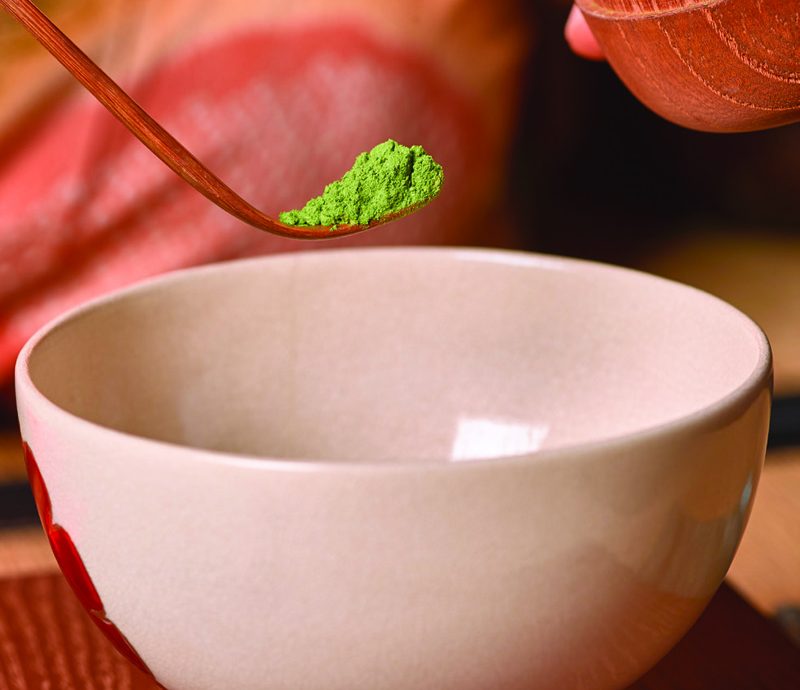
Images by George Mathew
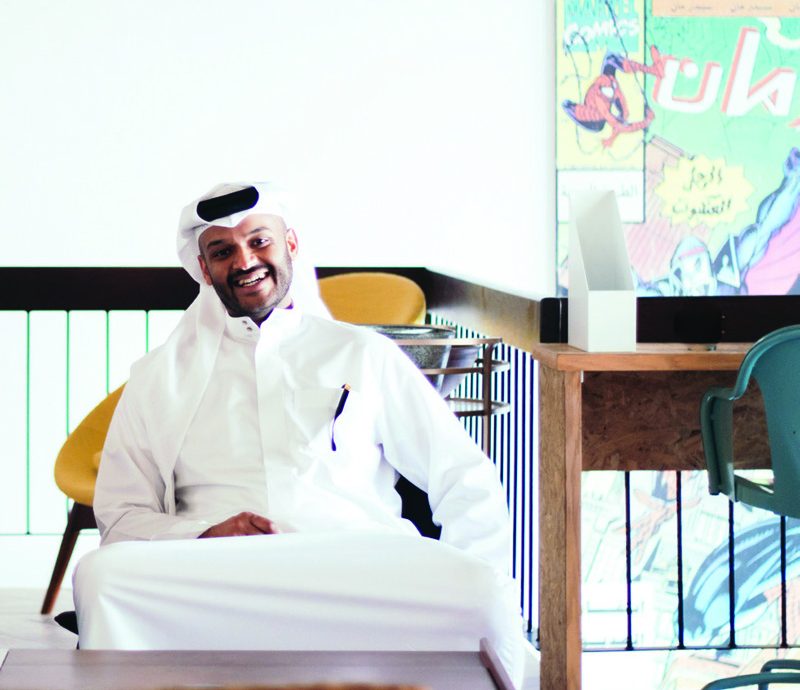
Few entities have garnered as much attention during the pandemic as co-working spaces. On one hand, they filled the void left by traditional offices closing for months on end. On the other, the idea of sharing an enclosed space with multiple people was hardly appealing. Enter: Salman Mattar and Abdulrahman AlSayed, co-founders of Space340. Pre-pandemic, this was a place where like-minded people worked and played. The community hub and co-working space has reopened its doors, and Salman tells us they’ve had to be both reactive and proactive. “I don’t think Space340 is at a new normal yet. As part of our social responsibility of helping reduce the spread of the virus, we had to temporarily close all in-person services as we’ve been forced into what is probably the largest work experiment to date. We’ve had to constantly readjust our operations to keep connecting with the community and stay afloat. Now, despite reopening with all the new measures in place, I think it’ll still be a period of testing the waters. It’s exciting and uncertain, but we’re staying optimistic.” And adding to that optimism is the thought of gathering again. “Prior to recent months, we held free workshops every month, and the completely unprompted socialising and networking that followed was such a mood booster for the mid-week blues.” Space340 is beloved for its seminars, speaker sessions, workshops, and hands-on activities, but 2020 had other plans, forcing its founders to improvise. “We’ve experimented with video series, webinars, and online workshops in the past few months. Not only have they helped us connect with people beyond our area, but they’ve also given us a chance to elevate even more diverse voices and continue building on an inclusive culture of learning. And through it all, the support of the community towards local businesses was such a joy to see. For a company that advocates community-building, it was so fulfilling to see it in action.” Like their peers, Salman and Abdulrahman plan to carry aspects of their new normal into the future. “We want to continue bringing the experience online to as many people as possible.”
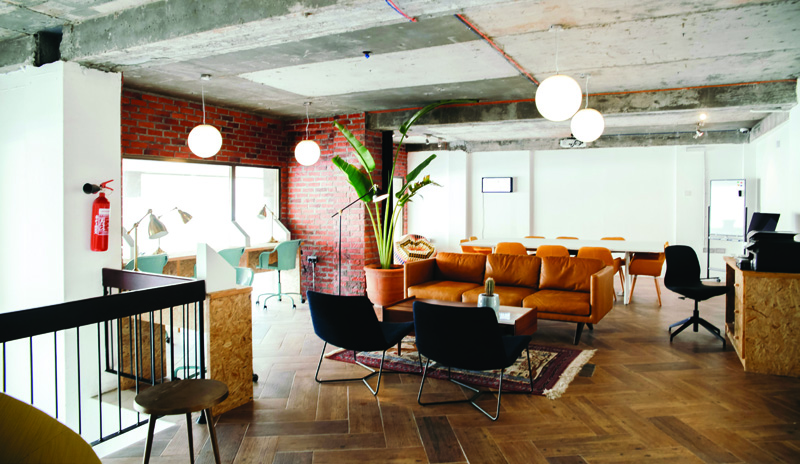
But it’s safe to say co-working spaces are set to thrive as companies look to cut costs and adopt a more flexible mindset, courtesy of coronavirus. “I think co-working spaces will play a huge role in the future when it comes to working from home,” says Salman. “Companies can decentralise work, and employees can be closer to home while remaining productive – it’s all about giving people options on where, when, and how to work. Everything else beyond the physical space provided by a co-working space is an added bonus. And it’s our responsibility to provide an experience that would enrich members’ lives beyond their jobs. At the end of the day, we’re community-makers first, space-operators second.”✤
“A COUNTRY GAINS ITS POWER FROM ITS PEOPLE, SO THE MORE WE UNITE, THE STRONGER WE’LL GET.”

No conversation about the pandemic would be complete without mentioning the havoc it has wreaked on the health of people worldwide, both physical and mental, putting holistic health and wellness into the spotlight like never before. So what do experts in the field have to say? Police-officerturned-holistic-health-coach Hamad Al Saad explains that while he doesn’t subscribe to the phrase ‘new normal’, we do have to shift some of our thoughts, habits, and behaviours. “We need to align with the circumstances so we don’t go against the current, which might lead to stress and anxiety. I also remind people to occasionally check on themselves to be able to understand their emotions and feel more in control.” He refers to his new project, The Nourishers, as a corona baby. “It was born at the beginning of this year, and will be a tool to connect users to wellness coaches from around the globe, online and offline. After all, this phase of our lives has only proven how precious health is, so The Nourishers will serve as a catalyst to improve the quality of people’s lives.” Here, Hamad takes a moment to acknowledge the support he received as an entrepreneur in the midst of a pandemic. “I want to extend my gratitude to Bahrain for how it handled this situation and the help I’ve gotten. As a result, I was able to pay it forward, promoting other businesses and sometimes offering my services free of charge. A country gains its power from its people, so the more we unite, the stronger we’ll get.” Hamad does, however, understand that turning to the likes of life coaches, therapists, and nutritionists is a luxury at a time of financial uncertainty. “While the pandemic helped people understand the value of self-care, some were afraid to pay for such services as they didn’t know what to expect next. And then there are those who think our services aren’t a necessity. I always advise such people to understand the importance of selfinvestment as the ROI is guaranteed.” But Hamad is glad to report that he has seen people more invested in their health. “Many might not consider seeking help, yet they’re dedicating time to staying active and cooking at home. It makes me happy as that’s the aim behind what we’re doing as coaches – we give our clients the tools and guidance to depend on themselves, so that self-care becomes embedded in their lifestyles. Still, it’s important to consider working with experts as they will draw a road map with continuous monitoring, so you can just focus on your journey and enjoy the process.” On a personal level, Hamad says the challenges of the past few months have helped him connect with people on a deeper level, but physical connection is what he misses. “We’re mammals, we live in communities, and the human touch is something crucial that we’ve been deprived of. Handshakes, hugs, being close to family and friends – that’s what I am looking forward to.”✤
“IT’S CRUCIAL THAT WE SUPPORT EACH OTHER, ESPECIALLY BECAUSE THE SIZE OF BAHRAIN CAN BE A DISADVANTAGE.”
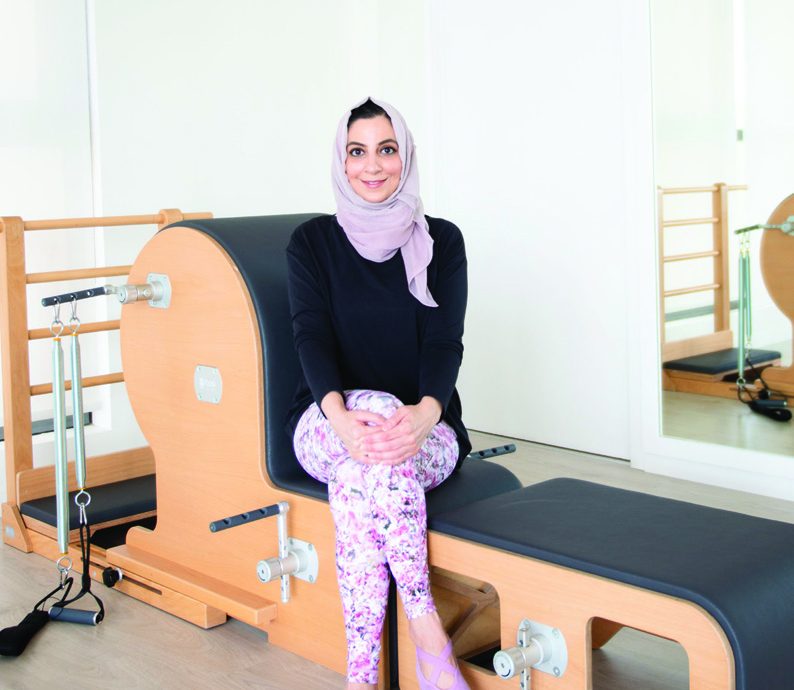
It’s only understandable when Nada Al-Barzinji needs a moment to succinctly sum up her new normal. “It’s a hard question,” says the founder of Breathe Pilates Studio, which was allowed to reinstate its in-studio classes last month. “It’s hard because I was home for over five months. I suddenly stopped working after working so hard for nearly 10 years. Before, all I did was say I’m tired, and then to not be tired anymore – to just be free,” she reflects as her voice trails off. “My norm was to teach six to eight hours in a row, back to back without a proper break, so my new norm is that I just can’t teach that way anymore. It can’t happen because of the new health and social distancing guidelines. Now, clients have to book in advance, get their temperatures taken, all that sanitising – it’s all very new to us. These are things I didn’t have to think of before.” The long-term expat first discovered Pilates after her son had an accident that forced her to quit her banking job and stay home. A desire to remain active paired with a family history of back problems piqued her interest in the fitness system and, today, she is a BASI Pilates instructor who’s incredibly passionate about her clientele and community. “You build friendships, you build relationships through Pilates – you even become their therapist a little bit. I love what I do. I love helping people look and feel better.” And it’s this love that eased her apprehension about reopening the studio. ” I was nervous to go back, but if I don’t work, I won’t have Breathe, so I had to put aside my fear of getting sick. For now, I’m taking it slowly and following guidelines. There used to be five teachers working at a time, now there’s two. That means we can’t make money the way we used to, but it’s something we have to do to ensure everyone’s safe.”
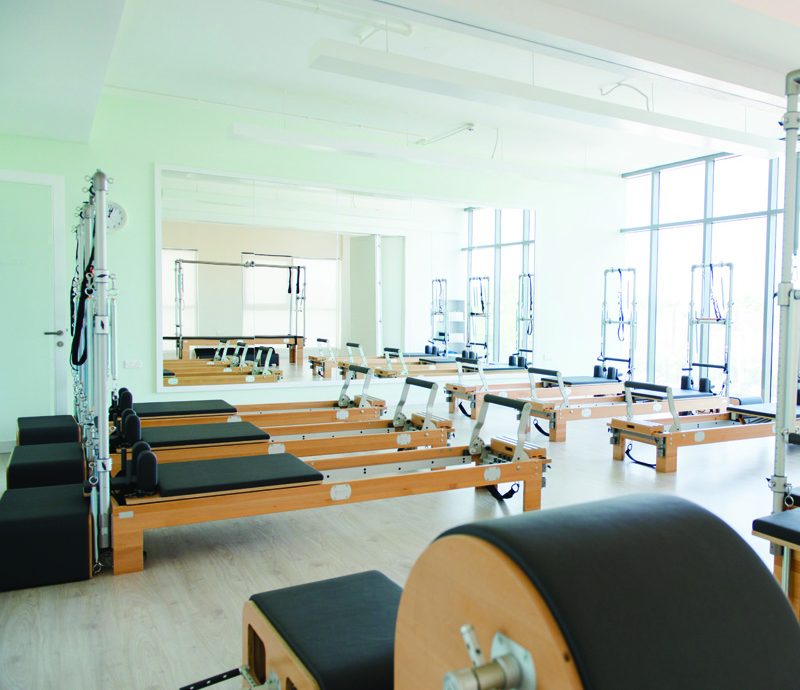
Like other entrepreneurs, Nada recognises the merits of the virtual world. “When we shut down, we questioned how we could conduct sessions over Zoom, especially with newer teachers who were still building their client bases. But online classes have been a real eye-opener. We have a client who’s continuing her sessions online as she tends to a sick parent abroad, for example. That was never considered an option before. Personally, I’ve been training with my teachers in California and back home in Washington, DC. It’s been amazing because we’re all still doing what needs to be done.” And like her peers, Nada is vocal about the need to support local. “It’s crucial that we support each other, especially because the size of Bahrain can be a disadvantage. Otherwise, none of us will be around. We, as a family, sometimes force ourselves to order from someplace we like in order to help out. Even BD10, BD20 helps businesses, you know?” ✤

